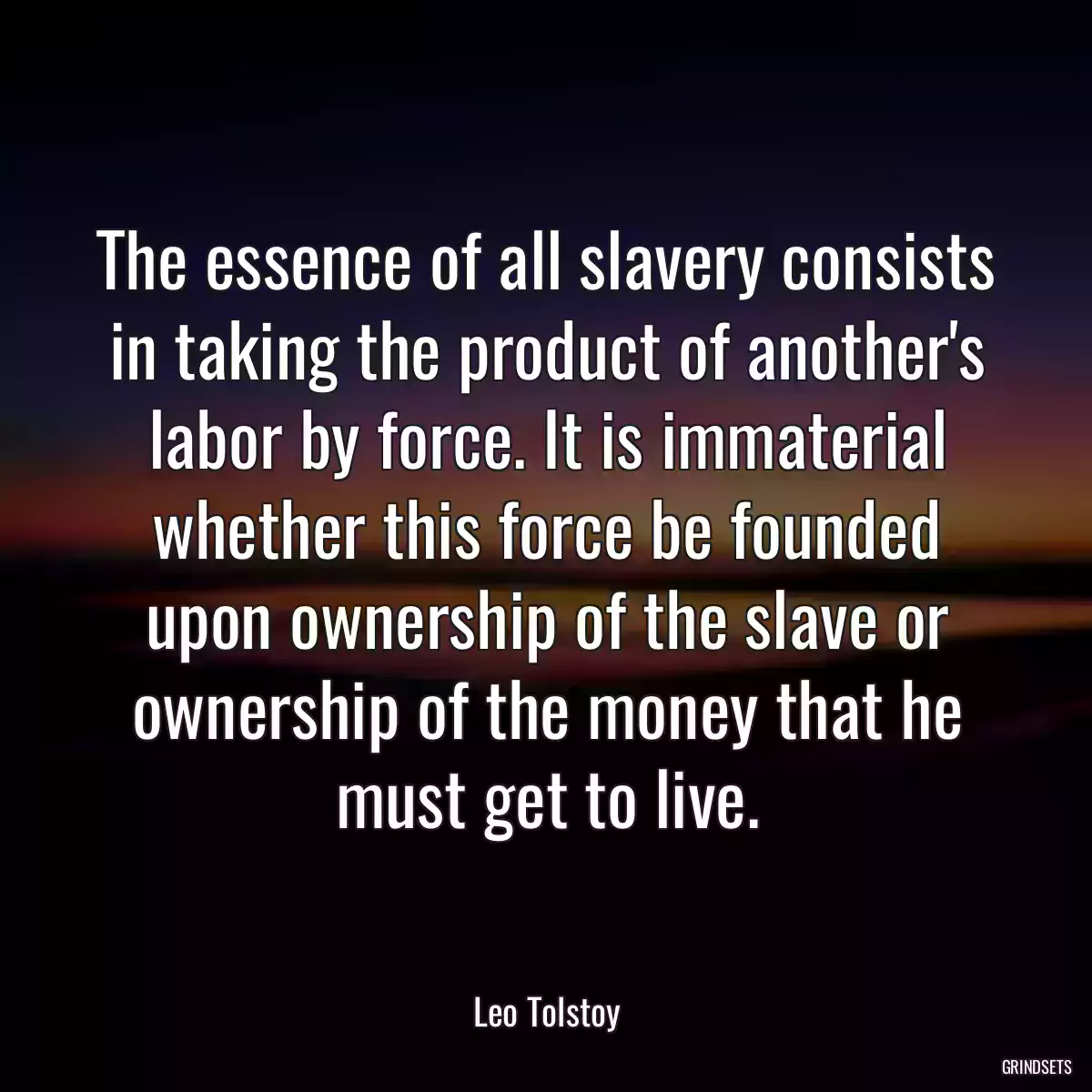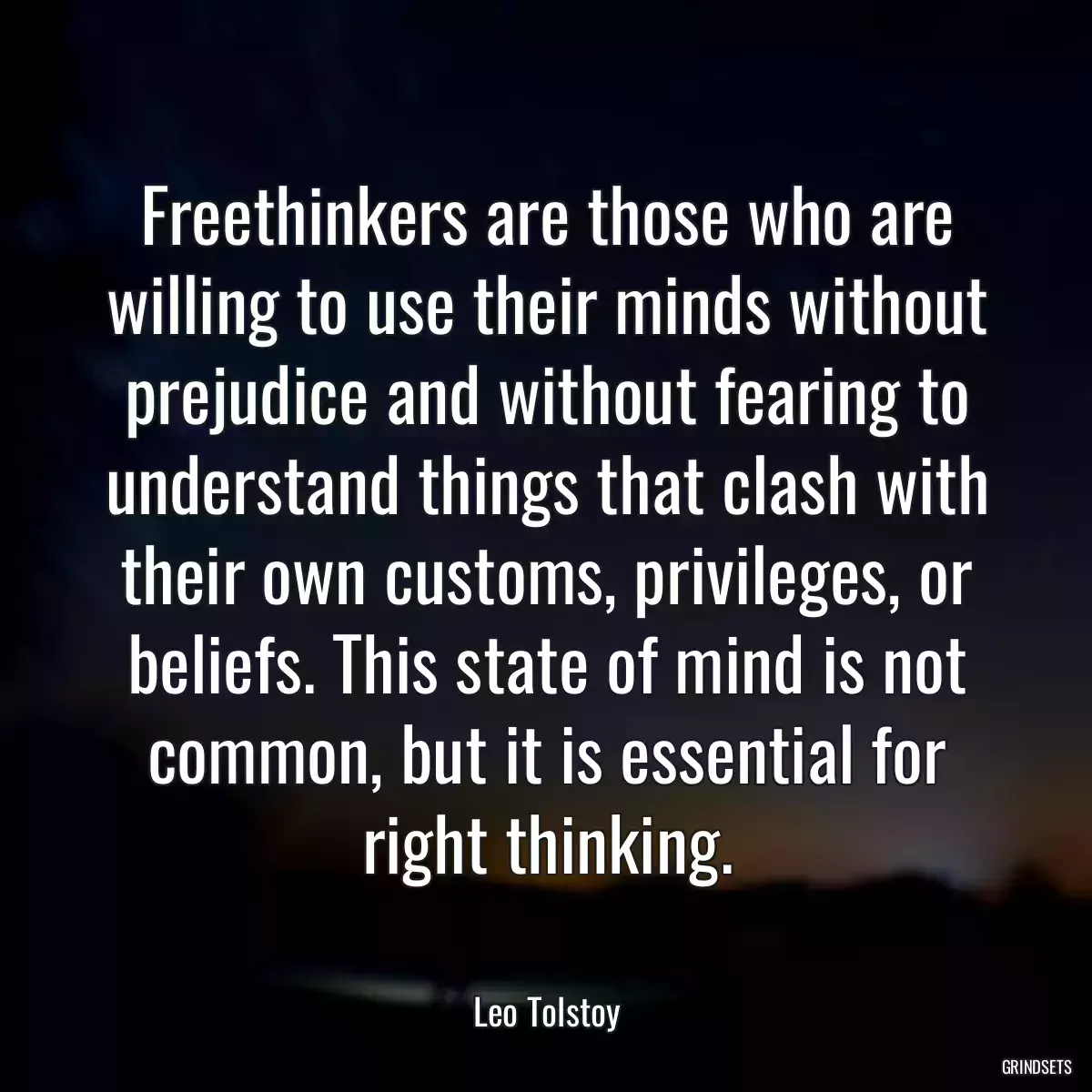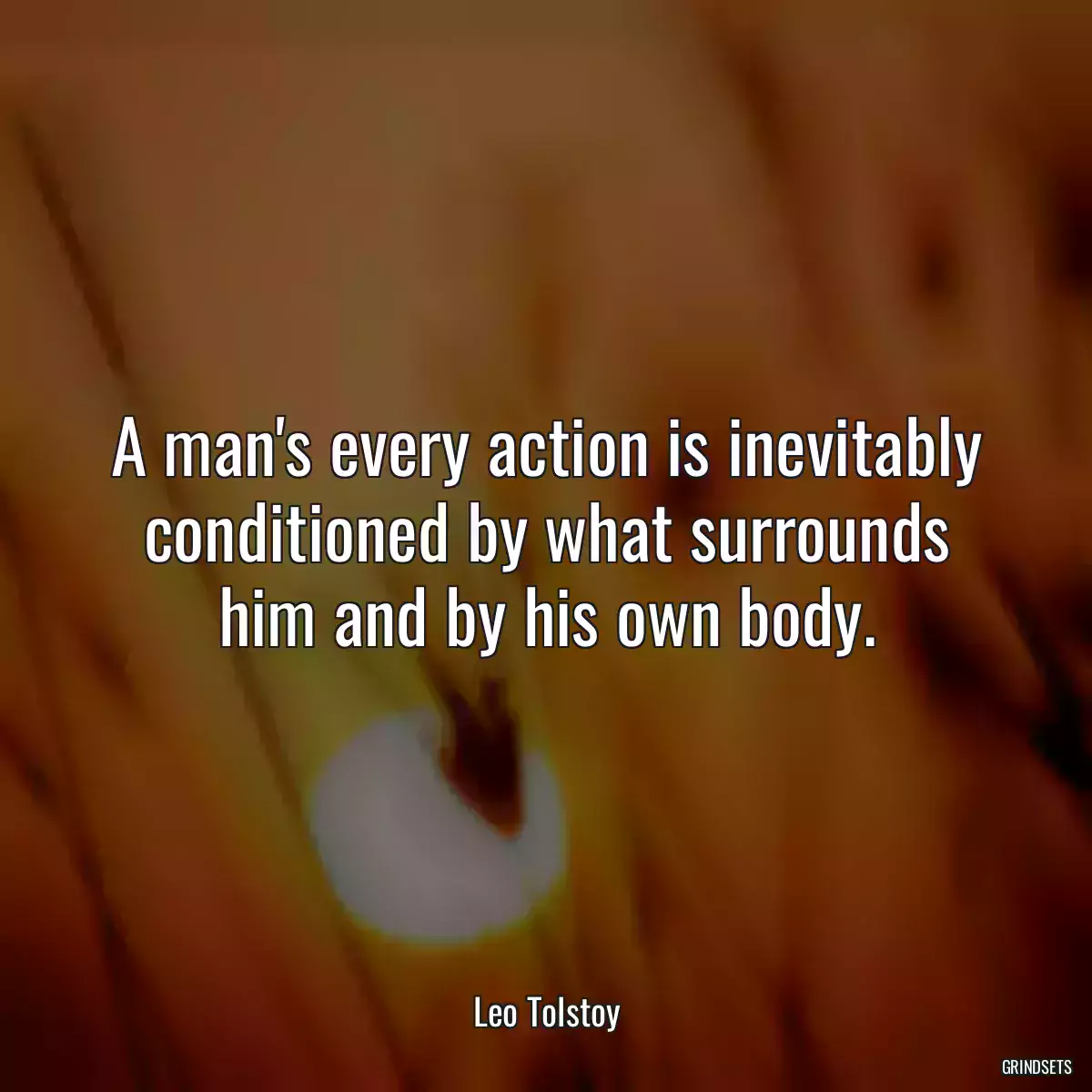
Quotes Leo Tolstoy - page 6
Find dozens of Leo Tolstoy with images to copy and share.

If people lacked the capacity to receive the thoughts of the men who preceded them and to pass on to others their own thoughts, men would be like wild beasts. And if men lacked this other capacity of being infected by art, people would be almost more savage still, and, above all, more separated from and more hostile to one another. Therefore the activity of art is a most important one, as important as the activity of speech itself and as generally diffused.
Money is a new form of slavery, and distinguishable from the old simply by the fact that it is impersonal - that there is no human relation between master and slave.
At one time,' Golenishchev continued, either not observing or not willing to observe that both Anna and Vronsky wanted to speak, 'at one time a freethinker was a man who had been brought up in the conception of religion, law, and morality, who reached freethought only after conflict and difficulty. But now a new type of born freethinkers has appeared, who grow up without so much as hearing that there used to be laws of morality, or religion, that authorities existed. They grow up in ideas of negation in everything - in other words, utter savages.
You may also like
War is like a game of chess ... but with this little difference, that in chess you may think over each move as long as you please and are not limited for time, and with this difference too, that a knight is always stronger than a pawn, and two pawns are always stronger than one, while in war a battalion is sometimes stronger than a division and sometimes weaker than a company. The relative strength of bodies of troops can never be known to anyone.... Success never depends, and never will depend, on position, or equipment, or even on numbers, and least of all on position.
Religious people are guided in their activities not by the consequences of their actions, but by the consciousness of the destination of their lives.
At moments of departure and a change of life, people capable of reflecting on their actions usually get into a serious state of mind. At these moments they usually take stock of the past and make plans for the future.
In spite of death, he felt the need of life and love. He felt that love saved him from despair, and that this love, under the menace of despair, had become still stronger and purer. The one mystery of death, still unsolved, had scarcely passed before his eyes, when another mystery had arisen, as insoluble, urging him to love and to life.
When it is impossible to stretch the very elastic threads of historical ratiocination any farther, when actions are clearly contrary to all that humanity calls right or even just, the historians produce a saving conception of 'greatness.' 'Greatness,' it seems, excludes the standards of right and wrong. For the 'great' man nothing is wrong, there is no atrocity for which a 'great' man can be blamed.

People look like rivers very much: water is everywhere the same, but the rivers are narrow, fast, wide, pure, cold, muddy and warm. The people are the same. They have the rudiment of every human habit in them and they behave according to them. Sometimes they even do not look like themselves, but they still stay whatever they are.
Too much polishing and you spoil things. There's a limit to the expressibility of ideas. You have a new thought, an interesting one. Then, as you try to perfect it, it ceases to be new and interesting, and loses the freshness with which it first occurred to you. You're spoiling it.
Muhammad has always been standing higher than the Christianity. He does not consider god as a human being and never makes himself equal to God. Muslims worship nothing except God and Muhammad is his Messenger. There is no any mystery and secret in it.
It seems as though mankind has forgotten the laws of its divine Saviour, Who preached love and forgiveness of injuries—and that men attribute the greatest merit to skill in killing one another.
Morning or night, Friday or Sunday, made no difference, everything was the same: the gnawing, excruciating, incessant pain; that awareness of life irrevocably passing but not yet gone; that dreadful, loathsome death, the only reality, relentlessly closing in on him; and that same endless lie. What did days, weeks, or hours matter?
The law condemns and punishes only actions within certain definite and narrow limits; it thereby justifies, in a way, all similar actions that lie outside those limits.
Why does an apple fall when it is ripe? Is it brought down by the force of gravity? Is it because its stalk withers? Because it is dried by the sun, because it grows too heavy, or because the boy standing under the tree wants to eat it? None of these is the cause.... Every action of theirs, that seems to them an act of their own freewill is in the historical sense not free at all but is bound up with the whole course of history and preordained from all eternity.
It is this law of love and its recognition as a rule of conduct in all our relations with friends, enemies and offenders which must inevitably bring about the complete transformation of the existing order of things,
not only among Christian nations, but among all the peoples of the globe
You may also like

The higher a man stands on the social ladder, the greater the number of people he is connected with, the more power he has over other people, the more obvious is the predestination and inevitability of his every action.